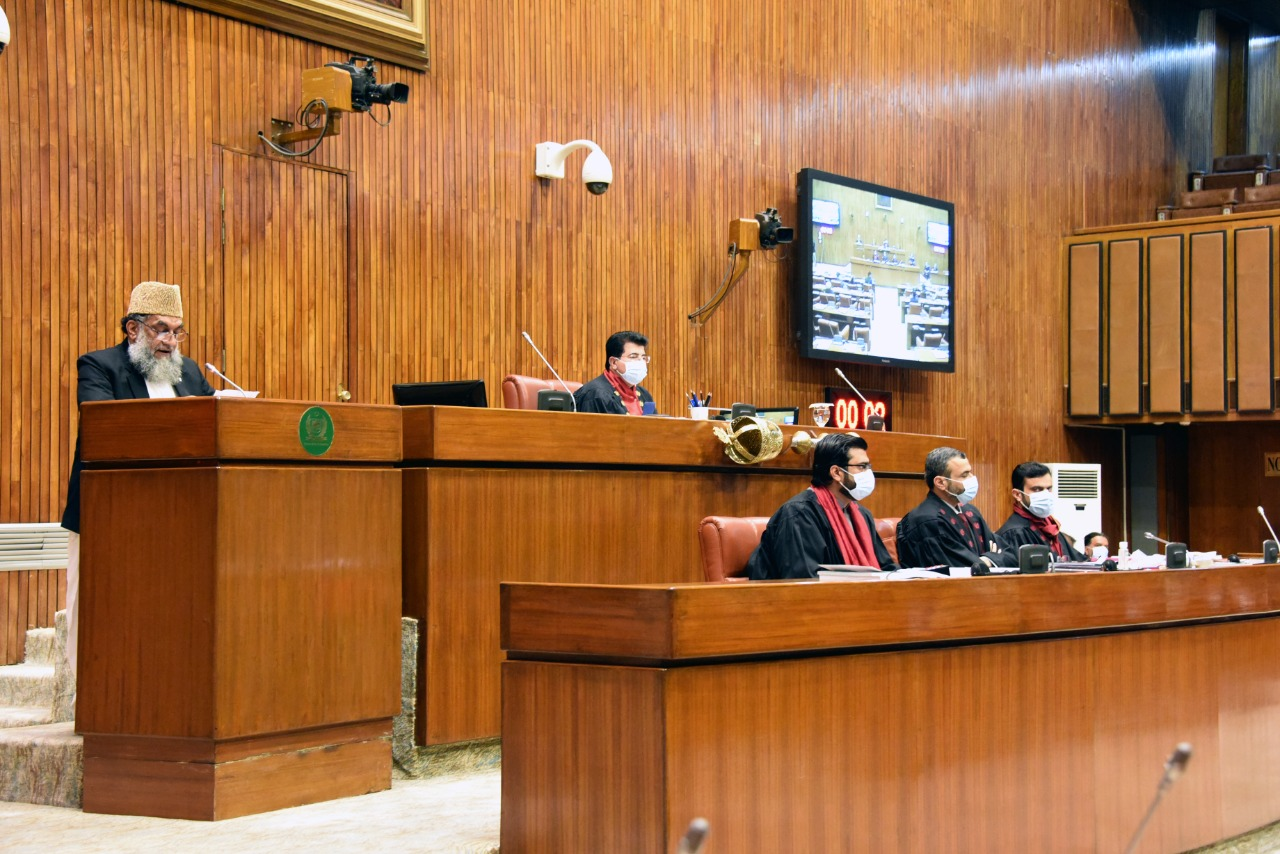
The Senate on Friday passed the controversial State Bank of Pakistan (SBP) amendment bill with a razor-thin majority of one vote, which the Information Minister Fawad Chaudhry said became possible due to the cooperation extended by the Pakistan Peoples Party.
Opposition Leader in the Senate Syed Yousaf Raza Gillani who is also the former prime minister, preferred attending a friend’s funeral over the most important sitting of the Senate that handed over absolute autonomy to the central bank. Some members of the Pakistan Muslim League-Nawaz, JUI-F, and Pashtoonkhwa Milli Awami Party did not attend the session while the lone member of the Awami National Party also skipped the final voting, helping the government get the bill passed with 43-42 majority.
On the condition of the International Monetary Fund, the government had proposed about 54 amendments in the SBP Act of 1956. After approval of the bill by the Senate, Pakistan has met the last remaining condition for holding the IMF executive board meeting to revive the stalled $6 billion bailout programme.
The IMF executive board will now meet on Wednesday to approve the $1 billion loan tranche and also consider a separate report on the health of the economy. The government has already met other IMF conditions that include approval of Rs360 billion mini-budget as well as increase in electricity prices and the interest rates.
The SBP bill will become the law of the land after President Arif Alvi gives his assent to it.
Sources told The Express Tribune that the government had also given a task to Senate Chairman Sadiq Sanjrani to ensure that the bill was smoothly passed. Sanjrani played his part by casting the vote in favour of the government when there was a tie on 43-43 on the motion to introduce the SBP bill in the Senate. He also delayed the proceedings until all the treasury members reached the house.
When Finance Minister Shaukat Tarin tabled the motion seeking permission to introduce the SBP bill, the opposition members objected to the move. A motion was put forth to vote through division and was carried by 44 against 43 votes due to the vote of the Senate chairman, giving the first blow to the opposition.
Information Minister Fawad Chaudhry attributed the government’s victory to the cooperation extended by the PPP, which was also the last party of Fawad before he joined the ruling PTI.
Senator Zarqa arrived at the House with oxygen cylinders and a team of doctors. Dr Zarqa remained in the House in a wheelchair. Senators inquired after her health. She left the House after the bill was passed.
During the session, about one-dozen members were absent, majority of them belonging to the opposition, two from the government and two from independent candidate Dilawar Khan’s group.
PPP’s Gillani and Sikandar Mendro, who is in the US for medical treatment, did not attend the session. Among other opposition members, Pashtoonkhwa Milli Awami Party’s Shafiq Tareen and Naseema Ehsan did not attend the meeting.
The firebrand Maulana Fazlur Rehman party’s Senator Talha Mahmood was also absent from the house. PML-N senators Mushahid Hussain Syed and Nazat Sadiq also did not attend the most crucial session. The total sum of the proposed amendments is that the financial control of the federal government will be lost, which will tantamount to “financial surrender” of the country, the opposition said in its dissenting note on the bill.
The opposition said that the SBP amendment bill has brought Pakistan’s national security and assets under severe strain and scrutiny of international financial imperialists. The PM Office had also raised several objections over the SBP Amendment Bill, 2021, which were also overruled by the government under pressure from the IMF. The PM Office noted that granting absolute autonomy to the State Bank meant that its governor would no longer be mandated to meet the premier to liaise on economic matters.
The PM Office also objected to abolishing the Monetary and Fiscal Policies Coordination Board (MFPCB), which had been set up since 1994 to ensure better coordination of monetary and fiscal policies. But parliament has now voted to dissolve the board.
The primary objective of the central bank will now be bringing price stability in the country but the law passed by parliament showed that the price stability goal was vague, as no explicit inflation target was set. The accountability of the central bank governor for missing the goal was also not ensured in the revised law.
The government has not been able to win back any significant ground that it had conceded during the February-March 2021 round of negotiations with the IMF. The bill passed by both houses of parliament is largely similar to what had been agreed with the IMF a year ago and led to removal of the then finance minister Dr Abdul Hafeez Shaikh.
There will be a complete ban on the federal government to borrow money from the central bank that shall not extend any direct credit to or guarantee any obligations of the government, or any government-owned entity or any other public entity, according to the new law.
This was a major source of concern for many people, as the country has been left at the mercy of commercial banks. There has already been a complete ban on government borrowing from the SBP since July 2019 and yet there is a double-digit growth in currency in circulation and inflation has also remained out of control.
In the new law, the accountability clause also remains as vague as it was earlier. In the name of accountability, “the governor shall submit an annual report before parliament regarding the achievement of the bank’s objectives, the conduct of monetary policy, state of the economy and the financial system”.
The Finance Division secretary has been stripped of the power to cast a vote as a member of the SBP board.
The governor shall be the chairperson of the board. In the governor’s absence, the board shall be chaired by the deputy governor in charge of the board meeting agenda items.
The clauses related to functional and institutional autonomy proposed in March have also largely remained unchanged.
Read Govt bulldozes mini-budget, SBP bill through NA amid opposition’s protest
Opposition objections
Addressing a news conference, the leaders of the opposition parties in the Senate said that the session was rigged as it was adjourned twice. PPP’s Sherry Rehman said that the members suffering from Covid were brought to the house with oxygen. “Today, the nation's sovereignty was auctioned for $1 billion. What they did in the dark of the night is unprecedented in history.” Sherry Rehman said the joint opposition was not in favor of the bill, adding that whichever government comes would reject the bill.
“The [Senate] chairman cast his vote, breaking the record of neutrality.” Senator Azam Nazir Tarar said, “Some of our senators could not come because of coronavirus. Despite a tie, the government passed the bill.” He said the days of this government were numbered. “In the dark of the night, they put the bill on the agenda,” he said, adding that the MQM did not support the government.
According to a dissenting note signed by the opposition members, it is disappointing to note that such an important bill was put in the “Orders of the Day” under the cloak of darkness in the late hours of the night. The bill has yet not become law and the State Bank has issued a notification, requiring commercial banks to consider the possibility of default on government loans while making their loan allocations, they added.
This is a very serious situation and can have consequences for immediate mobilisation in matters of national security. It is also very alarming that the central bank, which is always the lender of last resort, will no longer be able to mobilise the funds needed in times of crisis, nor will the government's ability to issue sovereign guarantees, listed as contingent liabilities, be possible, according to the opposition. The dissenting note further stated that the new law will compromise CPEC, foreign policy and relationship with neighbours will go under strain and defence budget will be affected.
The opposition went on to say that Pakistan's nuclear assets and their funding will come under strain after the passage of the bill. There will be one account for defence expenditure in the SBP, which will be under scrutiny of the IMF, the opposition members stated. “The total sum of the amendments, in the overall context, is to subject Pakistan to financial colonialism,” according to the dissenting note. Other elements of Pakistan's national power are already under the US scrutiny, now finance will also be and Pakistan will become the worst example of modern day colonialism, it added.


1720097164-0/BeFunky-collage-(9)1720097164-0-165x106.webp)
1730446133-0/BeFunky-collage-(7)1730446133-0-165x106.webp)


1730543683-0/Express-Tribune--(3)1730543683-0-270x192.webp)
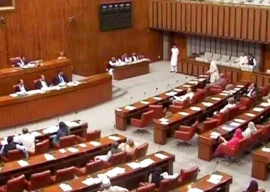
1730543238-0/Untitled-design-(86)1730543238-0-270x192.webp)

1730533347-0/Untitled-design-(85)1730533347-0-270x192.webp)

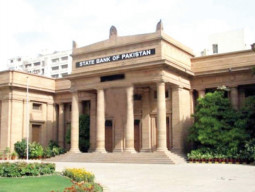
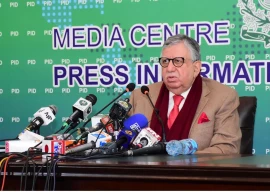
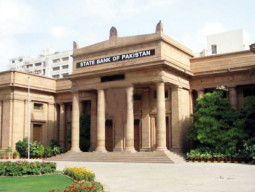
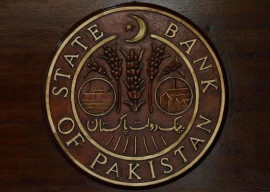






COMMENTS (2)
Comments are moderated and generally will be posted if they are on-topic and not abusive.
For more information, please see our Comments FAQ